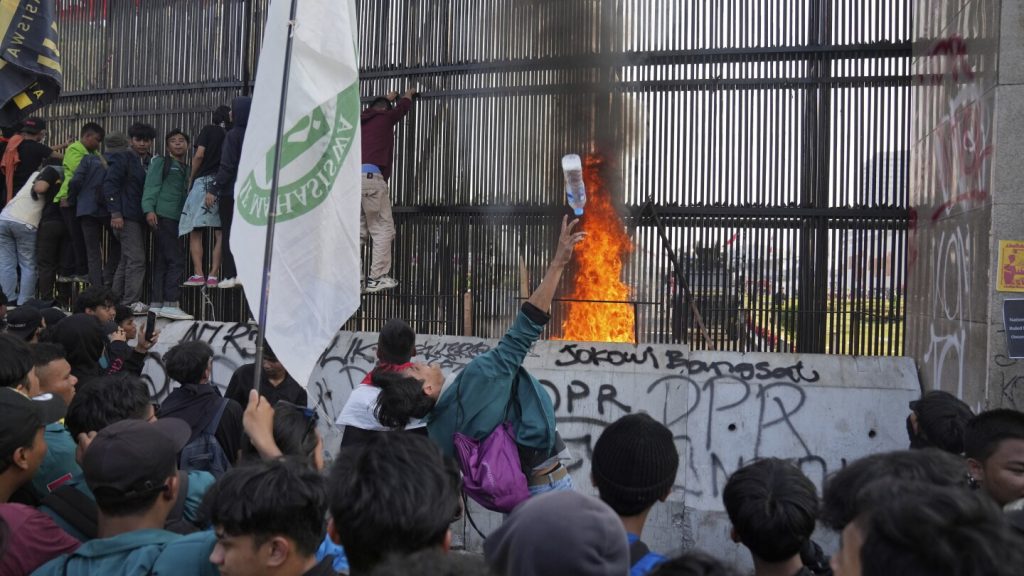The ratification of changes to Indonesia’s election laws was halted due to protests outside parliament, where thousands of demonstrators gathered to voice their opposition. The changes were seen as potentially strengthening the political influence of outgoing President Joko Widodo and undermining Indonesia’s young democracy. Parliament attempted to overturn one decision made by the Constitutional Court and amend another but failed to achieve a quorum amid the protests, leading to the cancellation of the ratification.
Indonesian police used tear gas and water cannons to disperse the protesters who tried to storm the parliament building. The protesters tore down a section of the fence, threw rocks at police, and occupied roads in front of the building. The Constitutional Court recently dismissed a challenge to an age limit that prevents individuals under 30 from running for regional governorships, which would impact Widodo’s youngest son, Kaesang Pangarep. Additionally, the court made it easier for political parties to nominate candidates by reducing a requirement related to holding a percentage of the local legislature.
The backlash against the changes to election laws spread widely on social media and sparked concerns about a possible constitutional crisis in Indonesia. The decision to make it easier for political parties to nominate candidates and adjust the age limit for serving as governor was met with criticism. Widodo, who is in his final term as president, will not be able to run for office again. His eldest son is set to become the incoming vice president, benefiting from an exception created by the court for former regional leaders. The involvement of Widodo’s brother-in-law in a case related to a close relative further fueled criticism.
Protests against the changes in election laws were not limited to Jakarta, as demonstrations were reported in other major cities like Bandung, Yogyakarta, Surabaya, and Makassar. In Yogyakarta, over 1,000 protesters gathered in front of various government buildings and demanded the rejection of the regional election bill, respect for the Constitutional Court’s ruling, and opposition to political dynasties. The widespread protests showcased the public’s anger at parliament’s attempts to override the decisions of the Constitutional Court and the prevalence of dynastic politics in Indonesia.
Political analysts highlighted the anger among protesters towards parliament’s actions in circumventing the Constitutional Court’s decisions and the perceived dynastic politics associated with President Widodo. The protests included activists, students, workers, celebrities, and musicians, all voicing their concerns about the state of democracy in Indonesia. The coordinated demonstrations in different cities indicated a collective rejection of the changes to election laws and a call for upholding democratic principles and fairness in governance. Overall, the protests reflected a growing dissatisfaction with the political processes and decisions that could impact the future of Indonesia’s democracy.


